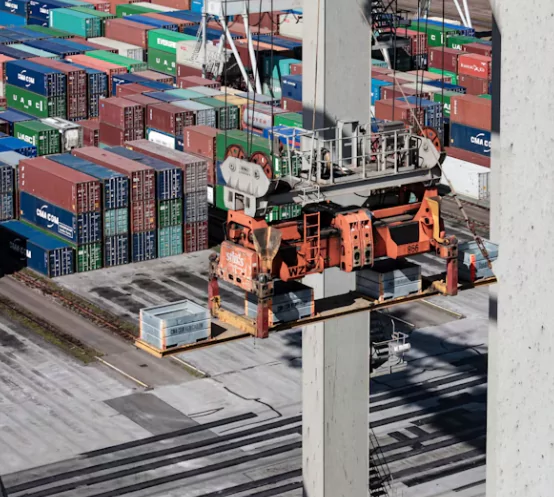The Role of Suppliers in Supply Chain Management
Suppliers play a role, in the Supplier Chain by enabling organizations to efficiently produce and deliver their products while maintaining high quality standards.They provide the raw materials and components that companies require to meet customer demands.The importance of suppliers extends beyond supplying goods; they also influence production timelines,cost structures and the overall resilience of the supply chain.
Defining Supplier Chain and Its Importance
The supply chain includes all the organizations involved in obtaining goods and services from suppliers to support the production process efficiently and effectively serve customers.
Relationships Between Suppliers and Supply Chain Management
Establishing connections with suppliers is crucial for successful supply chain management operations.The key lies in forming partnerships with suppliers rather than engaging in mere transactional dealings.Nurturing standing relationships cultivates trust and facilitates smoother negotiations to secure favorable terms.It also guarantees the receipt of high caliber supplies.Effective supplier management mitigates the risk of inventory shortages while enhancing flexibility and improving quality control measures, for received products.
Enhancing Supply Chain Resilience Through Effective Supplier Management
Ensuring the resilience of the supply chain goes beyond overseeing existing suppliers—it entails implementing thorough strategies to anticipate and address potential disruptions proactively. By establishing a supplier network that can swiftly adjust to varying conditions businesses can effectively respond to shifts, in the market or unforeseen global occurrences.
Identifying Potential Risks and Challenges
Identifying threats such, as political uncertainties and natural calamities is crucial for businesses to stay prepared and secure sufficient supply chain stability by evaluating risks associated with each supplier using a risk assessment matrix efficiently without which they could face unexpected disruptions causing delays and increased expenses.
Strategies for Enhancing Resilience
To strengthen the supply chain different tactics need to be applied to reduce risks and ensure business operations.
Technological Integration and Innovation
Implementing advanced technologies such as AI and IoT in supply chain management can significantly enhance efficiency and predictability. Technologies enable real-time tracking, predictive analytics, and improved communication between suppliers and the company. This real-time data can foresee potential disruptions and offer solutions before the impact reaches the consumer end.
Diversification of Suppliers
Depending much on just one supplier can pose risks to your business operations.One way to reduce these risks is by having suppliers from locations and industries.This diversification helps minimize disruptions, in the supply chain network.If one supplier encounters problems the others can step in to ensure a flow of supplies.
Sustainable Practices and Ethical Considerations
It is essential for modern supply chains to prioritize sourcing and sustainable methods, selecting suppliers who adhere to environmental and social regulations not only enhances corporate responsibility but also ensures a stable and sustainable supply chain reducing the possibility of legal liabilities and enhancing the brands standing with customers and investors.
Performance Monitoring and Continuous Improvement
Regularly evaluating and improving the supply chain is essential for success in the long run as businesses need to continuously track supplier performance and explore opportunities, for enhancements.
Key Performance Indicators (KPIs)
Supplier management success hinges on establishing and monitoring performance indicators like delivery schedules, adherence to quality standards and cost effectiveness. Observation of these metrics assists in pinpointin’ areas, for enhancement and guarantor that suppliers uphold the agreed upon benchmarks.
Feedback and Improvement Mechanisms
Consistent input from suppliers and regular audits conducted internally play a role in pinpoint the areas needing improvement and taking necessary actions to address them effectively. Develop a organized improvement strategy grounded on the received feedback to guarantee gradual enhancements, within the Supplier Chain operations while encouraging an environment that prioritizes ongoing performance betterment.
Holyale
Established in 2002′ Holyale Group is known as a tier sourcing company that provides a comprehensive service package to clients worldwide effortlessly.’ With a network of more than 10,’000 trusted suppliers and manufacturers’ Holyale has successfully assisted over 6,’000 global clients in procuring and enhancing products from China.’ In addition’ Holyales service portfolio includes markets such, as the Yiwu market and Guangzhou Market‘ offering a wide range of products.’
Holyale is really good, at optimizing the supply chain. Works hard to offer their partners top notch yet cost effective products that help businesses grow smoothly. No matter what the product requirements are Holyale handles everything from the beginning to the delivery point ensuring cost effectiveness, quality and faster delivery. Moreover they lower purchasing risks by managing orders.
Holyales core supply chain revolves around forming partnerships with key manufacturers in various industries to ensure competitive pricing and beneficial collaboration terms like flexible order quantities and high quality samples to give partners a competitive advantage through prioritized production schedules and fast delivery.
Additionally Holyale stresses the importance of managing supplier relationships acknowledging that establishing a partnership with the appropriate supplier is crucial for attaining top quality products, competitive pricing and on time delivery. Holyale eases the burden on its clients by overseeing supplier relationships resulting in time and cost savings and eliminating issues related to vendors thereby creating a conducive atmosphere, for business growth.
Procurement Process
At Holyale Groups procurement process is an efficient service tailored to meet your individual sourcing requirements. It starts with you sharing your needs such as product specifics like details and size along with quantities and any additional requests. You also share information about yourself or your company for a personalized experience. Within a day of receiving your details, at Holyale Group connects with you to offer support by choosing appropriate manufacturers from their vast network to provide a competitive quote. Working together with you and the supplier at Holyale involves creating samples for production purposes smoothly. Holyale takes charge of communicating and sending you samples for your review before moving forward with the order process. Once everything is confirmed and approved by you Holyale manages the mass production process to ensure it is completed accurately and promptly while keeping you informed regularly. Quality control procedures are strictly enforced, including inspections before production starts during product assembly and prior, to shipment to meet the standards set by both you and Holyale. When your items are good to go Holyale provides shipping choices that compete or collaborates with your chosen shipper to manage consolidation warehousing,customs clearance and other services such as Amazon FBA preparation.When your items arrive Holyale advises you to quickly handle customs clearance, for the goods.Finally Holyale appreciates your input tackling any concerns immediately and utilizing your feedback to consistently improve their sourcing offerings.
Conclusion
For twenty years in the industry field of expertise has made Holyale a trusted guide, for companies dealing with the complexities of sourcing from China By relying on Holyale for the sourcing task customers can concentrate exclusively on sales knowing that everything else is well taken care of
Ensuring the supply chain is well managed is key to strengthening its ability to endure challenges and ensuring operations for business growth opportunities.It involves forming relationships, with suppliers to mitigate risks and closely tracking performance to build a resilient and efficient supply chain that can quickly respond to changing market demands.
Summary
The complex interactions involved in managing suppliers and their impact within the Supply Chain are crucial beyond measure.Suppliers play a role as more than just sources of raw materials and parts—they serve as key collaborators shaping supply chain efficiency,cost dynamics and overall resilience.Nurturing partnerships with suppliers address potential risks and deploying diverse strategies to bolster resilience are indispensable, for staying competitive in the current market landscape.
In general it’s crucial to have Supplier Chain management to improve the resilience of the supply chain keep operations running smoothly and foster business expansion. By establishing partnerships with suppliers managing risks effectively and monitoring performance companies can build a strong and flexible supply chain that can adjust to shifting market needs.







